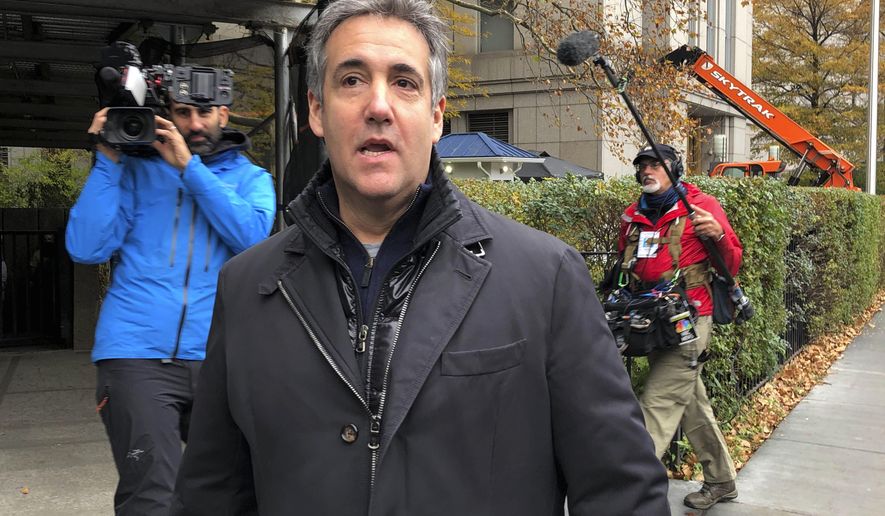A federal judge has dismissed a lawsuit brought by former Trump attorney Michael Cohen alleging that the former president and other officials locked him in solitary confinement to keep him from promoting his book that criticizes Donald Trump.
U.S. District Judge Lewis Jeffrey Liman rejected the lawsuit Monday, saying Supreme Court precedent bars Mr. Cohen’s claims, though he was sympathetic to his situation.
“Cohen’s … claims must be dismissed. Before doing so, however, this Court pauses to reiterate the profound violence this holding does to Cohen’s constitutional rights. Cohen’s complaint alleges an egregious violation of constitutional rights by the executive branch — nothing short of the use of executive power to lock up the President’s political enemies for speaking critically of him,” wrote Judge Liman, a Trump appointee.
Mr. Cohen has since published his book, “Disloyal: A Memoir,” and often speaks out about his experience to the media.
Mr. Trump’s lawyers celebrated the court dismissing the case.
“Today we scored another victory against Michael Cohen. The Court saw through Cohen’s frivolous lawsuit, which was legally deficient and, more importantly, based upon inflammatory allegations that are simply not true. President Donald J. Trump will continue to fight for the truth and against innumerable falsehoods being perpetrated by his enemies,” said Alina Habba, attorney for Mr. Trump, in a statement on Monday.
An attorney for Mr. Cohen said it’s inaccurate to call the lawsuit “frivolous” and noted that the judge appeared sympathetic to his client’s claims but was bound by high court precedent to dismiss the case.
“We respectfully disagree with the Court’s conclusion and will explore options because to do otherwise allows a very deep wound to remain open. And without accountability such egregious acts will continue,” attorney Jeffrey K. Levine said.
Mr. Cohen pleaded guilty to several charges including campaign finance violations in 2018 and was sentenced to three years in prison. He served his final year from his home due to the COVID-19 pandemic and concerns over crowded prison conditions.
When he was being released, Mr. Cohen had been asked to sign a government form, but it included a paragraph that banned him from speaking or writing to the press and media, including a prohibition on the use of social media.
He refused to sign it, claiming it was retaliation for planning to publish his book, and was placed in solitary confinement for 16 days before eventually being released.
Mr. Cohen, who frequently criticizes Mr. Trump on social media, said his book reveals Mr. Trump’s past racist remarks and other behavior he believed would hamper his future career in politics.
His lawsuit alleged the government violated his First and Eighth Amendment rights.
Correction: A previous version of this story incorrectly identified Mr. Cohen’s attorney. His name is Jeffrey K. Levine.
• Alex Swoyer can be reached at aswoyer@washingtontimes.com.




Please read our comment policy before commenting.